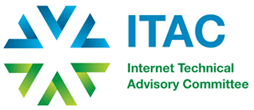
 By Constance Bommelaer, Global Policy Partnerships, and Carl Gahnberg, Policy Advisor, The Internet Society
By Constance Bommelaer, Global Policy Partnerships, and Carl Gahnberg, Policy Advisor, The Internet Society
During the first week of December, the OECD’s Committee on Digital Economy Policy (CDEP) gathered in Paris to work on the preparations for the OECD Ministerial on the Digital Economy in Cancun, Mexico, to be held on 21-23 June 2016. In coordinating the input from the technical community, the Internet Technical Advisory Committee (ITAC) has been actively involved in the preparations of the Ministerial, which will have a strong focus on the economic and social benefits of an open Internet.
As we start 2016, we also conclude the end of the ten year review of the World Summit on the Information Society (WSIS), which has highlighted the Internet’s role as a platform for global empowerment for social and economic progress. From a technical perspective the Internet is indeed a network of networks, but as it has demonstrated in recent years, it is most importantly a network of opportunities
Since the last OECD Ministerial on the Future of the Internet Economy in 2008, the Internet and its uses have evolved tremendously. There are still the great challenges ahead, but as technology has come to permeate almost all aspects of people’s lives, the discussions have shifted from the technical to the social impacts of the emerging Information Society. For example, today the digital economy contributes 5 to 9 percent to total GDP in developed markets, and in developing markets it is growing at 15 to 25 percent per year, which means that increased access to the Internet, and the ability to use it, is more than bridging a digital divide – it’s an opportunity to bridge economic and social disparities. In light of these developments, the overall theme of the OECD 2016 Ministerial is particularly compelling: Digital Economy: Innovation, Growth and Social Prosperity
The OECD’s Ministerial is based on this important insight, and in particular how the open nature of the Internet is a key component of its success. As such, the discussions, and the work of the committee have been highly focused on how to harness the full potential of the Internet in the years to come.
There are also important challenges to address, that will be reflected in the four pillars of the Ministerial:
- Ensuring Internet Openness for continued innovation
- Building Globlal Connectivity
- Building a trust-worthy environment where the Internet economy can flourish
- Striving for jobs and skills in the Digital Economy
Many of the articles contained in this editorial offer an important contribution to these discussions. Also, on the day before the ministerial, the ITAC Forum will address a broad, but yet interrelated, set of issues, such as how to foster e-entrepreneurship, the importance of open standards for the Internet of Things (IoT), and the need for a collaborative approach to Internet security. All important components in realizing the Internet as a network of opportunities, where the free, reliable and trusted flow of data is at the core.
You are all welcome to join us at this occasion!
